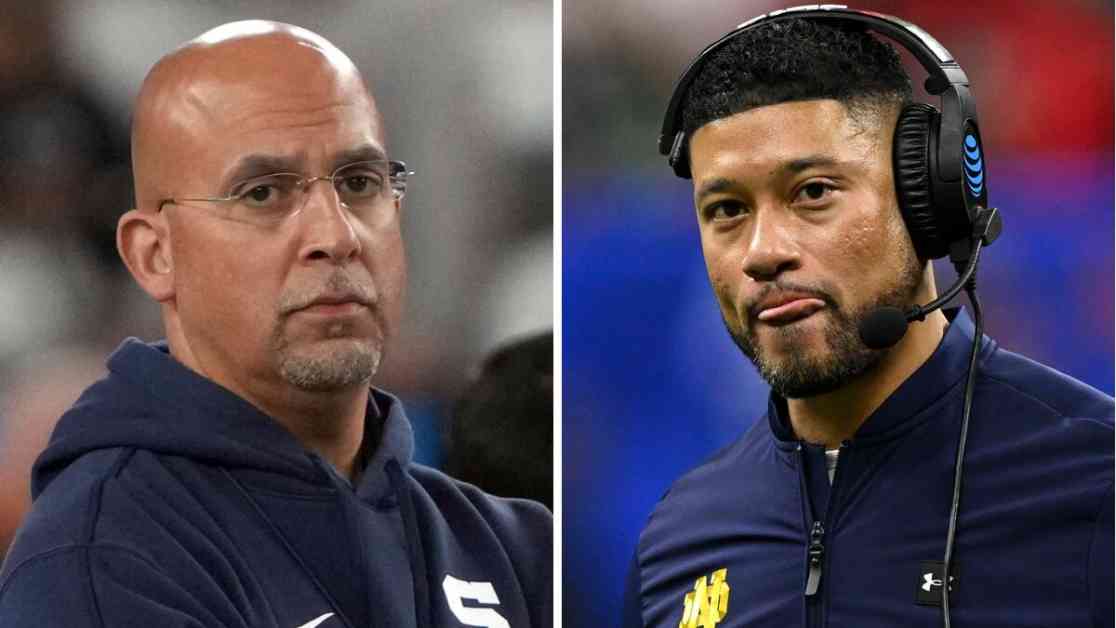Recognizing Historic Nature: James Franklin & Marcus Freeman in CFP Semifinal
James Franklin of Penn State and Marcus Freeman of Notre Dame are making history as the first Black head coaches to lead teams to the College Football Playoff. Both coaches have impressive records of 2-0 in the 12-team tournament and are set to face each other in a semifinal showdown on Thursday night at the Fiesta Bowl. The significance of this matchup is monumental as either Franklin or Freeman will emerge as the first Black coach to play for a CFP championship, marking a groundbreaking moment for diversity and representation in college football.
Impact on Diversity in College Football
The historic achievement of Franklin and Freeman highlights the progress and challenges faced by Black head coaches in college football. Franklin, who has been coaching at Penn State for 11 seasons, reflected on the significance of this moment by drawing parallels to the first Super Bowl featuring Black head coaches, Tony Dungy and Lovie Smith, in 2007. He emphasized the importance of representation for young coaches and the impact it can have on creating opportunities within the profession.
Despite some progress in the number of Black head coaches in the FBS level, there is still a disparity considering the high percentage of Black players in the league. Franklin acknowledged the growth from six Black head coaches in 2007 to 16 currently but emphasized the need for continued efforts to create more opportunities for aspiring coaches.
Challenges and Progress in Coaching Diversity
The landscape of coaching diversity in college football varies across different conferences. While the NFL has seen a similar rate of hiring Black head coaches, progress in the Power 4 college conferences has been slower. Only eight out of 68 head coaches are Black, with additional representation from non-Black minorities in leadership positions.
Freeman’s acknowledgment of his dual heritage as Black and South Korean sheds light on the importance of diverse representation in coaching roles. His commitment to being a role model for others who share similar backgrounds underscores the significance of breaking barriers and challenging stereotypes in the coaching profession.
Commitment to Mentorship and Advocacy
As Franklin and Freeman prepare for the Fiesta Bowl and the potential opportunity to compete for the CFP title, they recognize the responsibility they carry as role models and pioneers in coaching diversity. Both coaches have expressed their commitment to supporting and advocating for fellow Black coaches during the offseason, emphasizing the importance of mentorship and creating opportunities for aspiring coaches.
The journey of Franklin and Freeman not only symbolizes a historic moment in college football but also serves as a reminder of the ongoing efforts needed to promote diversity and inclusivity within the coaching ranks. As they continue to lead their teams with determination and excellence, their impact extends beyond the field, inspiring future generations of coaches to break barriers and strive for greatness.



























